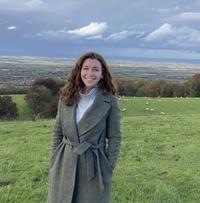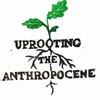DPhil Research: Molly


Molly Masterson is a DPhil in Archaeology here at the School of Archaeology. Her research explores plant intentionality - re-evaluating plant-human relationships across temporal landscapes. She recently helped organise the Uprooting the Anthropocene conference with TORCH. Molly believes that archaeologists are well placed to engage with discussions and research regarding climate change.
In the last few weeks alone, we have been faced with persistent reminders of the consequences of human-induced climate change. How can we as archaeologists engage with discussions and research regarding climate change? In a broader sense, how can the Humanities and Social Sciences contribute to the ongoing work? As trees become an ever more apparent saviour of humanity (planting trees to clean the air, using wood materials in place of plastic, etc.) our disciplines have a unique ability to reimagine human-tree relationships and move beyond human-centred thought. These are precisely the themes we explored during our one-day virtual conference, entitled ‘Uprooting the Anthropocene: (re-)centring trees in tree-human relationships,’ funded and hosted by TORCH Oxford. We brought together early career scholars from across the globe and from a variety of disciplines in order to explore the notion of ‘tree-ish’ thinking, of how we engage with and regard trees. Vitally, in order to do so, we had to extend our thinking beyond the human, questioning the notion of non-human agency and intentionality.
Archaeology has much to contribute on this front. Material Engagement Theory, New Materialism, and post-processual archaeology have transformed our discipline in the last few decades and have widened our perspectives beyond the human. We are entering into a period when such theories and practices can be extended beyond objects and animals to include a distinct category: plants. In this case, trees are a fascinating subject to consider. How have humans, throughout extensive periods of time, engaged with and maintained relationships with trees? How have trees shaped human becoming?
These are questions we discussed throughout the programme, from expert testimonies provided by Prof Laura Rival (Oxford), Dr Monica Gagliano (Southern Cross University), and Dr Mike Bintley (Birkbeck University of London). We viewed tree-art from around the world including a discussion with artist Bo Zheng and scholars from Nepal, Jamaica, and Europe. Anthropologists, architects, urban landscapers, archaeologists, philosophers, writers and historians engaged with notions of ‘tree-ish’ thinking and tree-human relationships. We began the process of both uprooting and re-rooting the Anthropocene, questioning how humans have previously, and will continue to engage with trees and nature. The conference was an inspiring reminder that the Humanities and Social Sciences have a wealth of knowledge and thought to contribute to discussions regarding not only our pasts, but our futures in regard to trees.
Our conference brought together a range of theories from diverse scholars, all of whom are connected by trees. Whether art, urban design, deep within the archaeological record, or planted right in front of us, the ways in which we engage with trees act as a way of recharacterizing our relationships with nature in a broader sense. Archaeologists—and scholars within the Humanities—have the ability to engage with these themes and explore new ways of combating the catastrophic consequences of climate change. Our conference reinforced the idea that we are part of the conversation and that we have much to add.
Uprooting the Anthropocene: (re-)centring trees in tree-human relationships
Thursday 22 July, 2021

The developing climate crisis forces all disciplines to re-examine their core assumptions. We face an imperative to reconsider, across timescales, relationships between humans and the environment. This conference invites researchers to develop new perspectives in light of this crisis and to draw inspiration from post-humanist approaches and from the work of indigenous scholars and artists. We will approach trees as trees - both as individuals and as collectives, prioritising their perspectives and arboreality within their distinct ecosystems and environments. Moving beyond previous work that has situated trees within human narratives, this conference will attempt to consider ‘tree-ish’ thinking within a broad range of subjects, from the Humanities to the Social and Natural Sciences. Taking this perspective will allow us to examine how trees, across space and time, have engaged with and formed networks alongside humans and nonhuman others.
Trees have been significant to many human societies, but seldom in the same way. In a Western context, they have spoken to communal cosmologies and stimulated scientific and personal discoveries, served as markers to establish imagined and practical boundaries, and acted as frameworks for representing emotions, genealogy, and human inter-connectedness. However alongside and within this, they have often been reduced to passive objects upon which human agency is enacted. Much of this can be attributed to the Western separation between nature and culture, and our disassociation from our surrounding environments. Our conference will explore the idea that trees and other nonhumans are active, cognisant, and intentional beings- an awareness that has all too often been lost.



